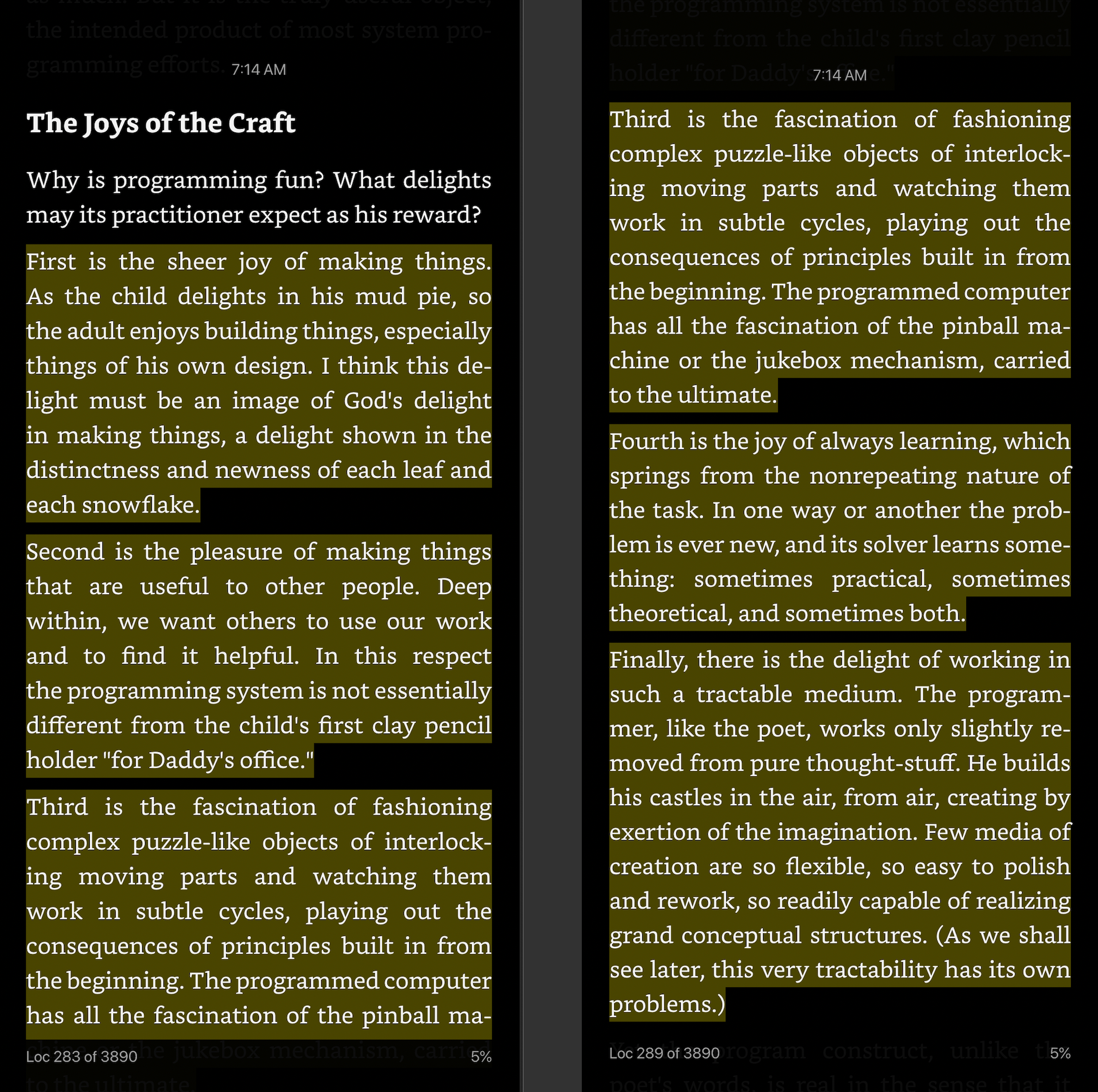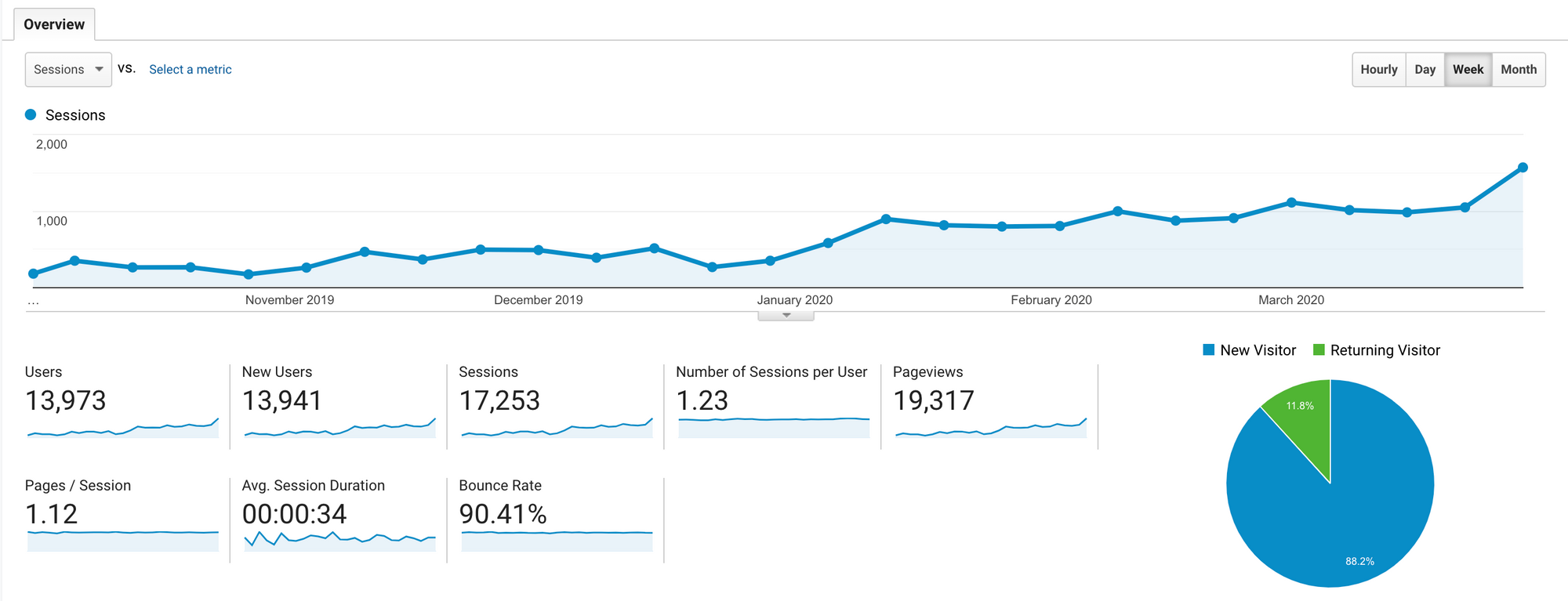I was going over my notes today and realized that it had been two years since I launched Cronhub on ProductHunt. Cronhub is now my most successful side-project and the first software that I built that generates income. My journey as a maker has been fun and challenging. Since I'm a big proponent for learning in public, I thought I'd share my reflections here in this post. I hope this will inspire you and you can learn something from my experience. I know reading similar articles inspired me along the way, so I hope this can do the same for you if you're on a similar journey.
Motivation
When I started Cronhub, I was sure that my biggest motivation behind building Cronhub was obtaining my freedom and owning my time. I wanted to be my boss and control my future. I thought that doing my own thing was the only viable path for financial independence. Even though this goal still pushes me forward, there are other factors in play now.
I wrote an entire blog post about the famous dilemma of doing your own thing vs. working for someone else. This post is now my most popular post ever with ~200K views. I learned that not everything is bright on the other side of the spectrum. Building your own business and making it the primary source of your income is hard and comes with many challenges, including more stress, pressure, and work. I think it was personally crucial to me to acknowledge it finally. However, that didn't stop me to continue doing my own thing along with my full-time job. I think both things can live together.
What I find my biggest driver now is me becoming a more self-aware person and understanding what I'm good at and what I enjoy most. I know that I love making things and talking about them. I'm a maker in heart, and the space I want to be in is the developer tools market. It aligns with my skills and passion. I've become obsessed with products that provide exceptional developer experience. The experience is everything from accessibility to product design. I believe I can turn Cronhub into a developer focus product that I'm very proud of, and this excites me.
Building a business is probably the best education one can ask for because you end up becoming a multi-disciplinary learner. I see it as the most accelerated and practical business school one can attend. Apart from solving hard technical problems, you end up learning about business, marketing, and finance. The domain of problems is so wide that there is always something new to learn. I like this a lot because learning is fun and I have broad interests from computer science to marketing.
Exciting Milestones
I've had many milestones to celebrate in the last two years. Getting my first paying customer or hitting $100 MRR both were pretty big deals for me. I thought if there were 10 people willing to pay for my product I could probably find more. Making something and watching other people using and finding it valuable is a remarkable feeling, and that's what I love about programming. The Mythical Man-Month book calls it "The Joys of the Craft" and I think no other book explains it better than this 50 years old book.

Financial goals are not the only metric I use to measure the success of my product. Of course, it's a valid way to measure the product-market fit, but focusing heavily on your product might be a better bet for your long-term success. I've added a bunch of new features on Cronhub trying to increase user value and retention.
When I launched Cronhub, there was only a single paid plan. Now I have pricing plans for small and medium-sized businesses. To make it more compelling to business users, I've added team support for team members to collaborate. I'm confident that there is a huge potential for collaborative products in the "Developer Tools" space. I think more companies will transition to remote work which creates a need for more async focused developer tools. I'm planning to invest more in collaborative features in the future.
I launched a small project called Crontab, that makes it easy to generate cron expressions online. I know that remembering the cron format is not easy, so I thought this product addition would be a good side-project as part of my marketing strategy. This has become a big success, bigger than I was expecting. I launched it a year ago, and it's been organically growing by itself and not requiring much maintenance work from me. It's now showing up on the first page of Google search for multiple keywords. Here is the chart of the growth in views.

This side-project has played an excellent acquisition channel for my main product, and I plan to launch similar side-projects in the future. I think creating open-source projects that complement your paid product is a good strategy because side-project marketing is one of the most effective ways to promote a developer-focused product.
In addition to what I've mentioned, I've also launched the first version of Cronhub CLI and Public API. I plan to invest heavily in CLI development. I know that CLI tools are not going anywhere in the future, and compared to Graphical User Interfaces (GUI), they are easier to scale because adding more features doesn't add screen clutter. Yesterday, I read a great article about building CLIs. I like how Repl.it envisions the next generation of CLIs and highly recommend to check out their product. Repl.it is one of my favorite startups in the developer tools space. I've been very impressed by their product and overall vision in computing.
Since I love writing, it's natural that one of the ways I try to promote my work is writing content. Having a blog helps with SEO and its returns compound over time by adding more organic traffic. If you plan to be a solo founder for the long-term, I think it's essential to think about your organic growth channels. This is especially true for teams that do not have a sales department. It takes some time for SEO to kick in, but once it does, you see people discovering your product through search. Apart from creating high-quality content, you also need to optimize your product for performance, including the speed of your site. There are some useful resources out there that teach you how to do it, and I highly recommend checking them out from the early days.
I'm also very grateful to my co-workers and Joel for his continuous support. Buffer and Joel, in particular, has been supporting my side-project from the early days. His genuine support and transparency really helped me to shape as a maker. I can be vocal about my side-projects on social media and freely share my journey for the public. I don't think I could have written this very article if I knew I didn't have his trust.
Here is Joel's tweet where he shared one of my blog posts on Twitter.
At Buffer, we allow, even encourage, side projects / businesses. It's been beautiful to observe the positive impact of this non-zero-sum mentality.
— Joel Gascoigne (@joelgascoigne) January 23, 2020
Great example is @tiggreen (has side project making $1k/mo!). Interesting thoughts from him on the subject: https://t.co/ahDokR91fh
Another milestone that I hit last year was the acquisition offer from a relatively well-known company in the space. I was grateful for the opportunity, but I turned it down. It was validating to see another company finding value in my product. I know it boosted my confidence at the time. I don't want to sell my company now but don't want to take it out from the long-term outcome. You never know what your priorities will be in the future.
Finally, earlier this year, I formed a company called "Code Labs LLC." I used Stripe Atlas for handling all the paperwork, and it was an enjoyable experience. It took me a couple of hours to form a new internet company. I ended up incorporating an LLC to reduce the tax complications. When you have an LLC, you treat revenue as your income when filing taxes. This will keep things simple. I now have everything I need for handling my company financials, including a separate bank account that I can use for deposits and expenses.
Things that didn’t go well
Building a product is hard and it comes with many challenges. The biggest challenge has been finding time to work on my own thing while working full-time. Last year was particularly hard for me at work because I changed my role from a product engineer to a site-reliability engineer. I'm now the first and only SRE at Buffer. I worked with the engineering leadership to define my role. The type of work I do now is broad and aligns nicely with my professional interests in systems, monitoring, and reliability. Building highly reliable and scalable systems are hard but also fun.
One of my responsibilities as an SRE is to set up engineering practices and advocating for them. I like this because I get to work with other engineers a lot, and that energizes me. I'm always thinking of ways how I can make our engineers more productive, and that's an opportunity to work on high-impact projects. I choose my projects and have full autonomy to decide what to work on. My role transition and traveling with my wife took a lot of time from me. It was hard to find a decent time for Cronhub. Now that we have less travel planned for this year, I have more time to spare on my project.
Being a solo-maker is hard because you have to find your motivation. I'm lucky I'm a self-motivated person, but even that doesn't stop me from having the days or weeks where I can't do anything other than watching shows or youtube videos. In addition, this becomes even harder when you have months with no new paying customer. Seeing the company revenue plateau for months is difficult and it certainly makes me question my decisions. I assume this is true for everyone who runs a business, and I'm not alone here. What I usually do when I lack motivation is either listening to IndieHackers podcast or waiting until the fog clears away.
I wish I had close friends who are on a similar journey as I'm. We could discuss all the aspects of building a business together and brainstorm ideas. I sometimes seek validation from my close friends, and not getting enough interest from them is a bit disappointing. If your friends are not interested in entrepreneurship (which is totally fine) or have different interests , you can try to find support in existing online communities like Indie Hackers. Seeing other people facing similar challenges and going over the same steps gives you a sense of belonging. I primarily use Twitter for this purpose. Over the years, I connected with many makers who are building great products online and learned a lot from them.
When I started Cronhub, I didn't do any type of market or customer research. I knew I'm solving my problem. This was enough validation to start a new product. However, I began to think a lot recently about the size of the market I operate. I know that the cron monitoring market is small, and many well-established infrastructure monitoring companies provide this as a feature. What I did was taking that feature and turning it into a product. I ask myself whether I should stay focus on this niche problem or expand my product offerings beyond cron monitoring. I know there are many variables in play here, but this has been bugging me for some time. I still think about this and want to stay open-minded.
Building a product by yourself means you're on-call 24/7. You should keep your phone with you wherever you go and make sure if anything breaks you can fix it. That's why I highly recommend investing in your productivity from day one if you're a solo founder. This means prioritizing the reliability of your product and treating it as an essential feature. I use Cronhub for monitoring my cron jobs and Datadog for infrastructure monitoring and alerting. If you ignore reliability, you may end up fixing only bugs and not finding time for exciting feature development.
I don't have a co-founder, but there were many times that I wished I had one. Finding someone who I could rely upon and trust could have been a tremendous help. I thought about finding a co-founder but never actually took any actionable steps other than thinking about it. I'm not afraid of splitting the ownership of what I've already built. I know I'm keen to do it if the right person shows up. I will continue thinking about this in the future.
Conclusion
I've learned a lot in the past years. I know it might take a long time to build a sustainable business, but I feel I'm ready to be in this adventure. I love making things because, first and foremost, it's fun. Building something worthy that other people find useful is an incredible feeling.
If you wish to embark on a similar journey and build a profitable internet business, I'd suggest starting from solving your itch. If it ends up not being valuable to others, at least you know it's useful to you. I hope you can find what brings you joy and become successful in it. Good luck!

